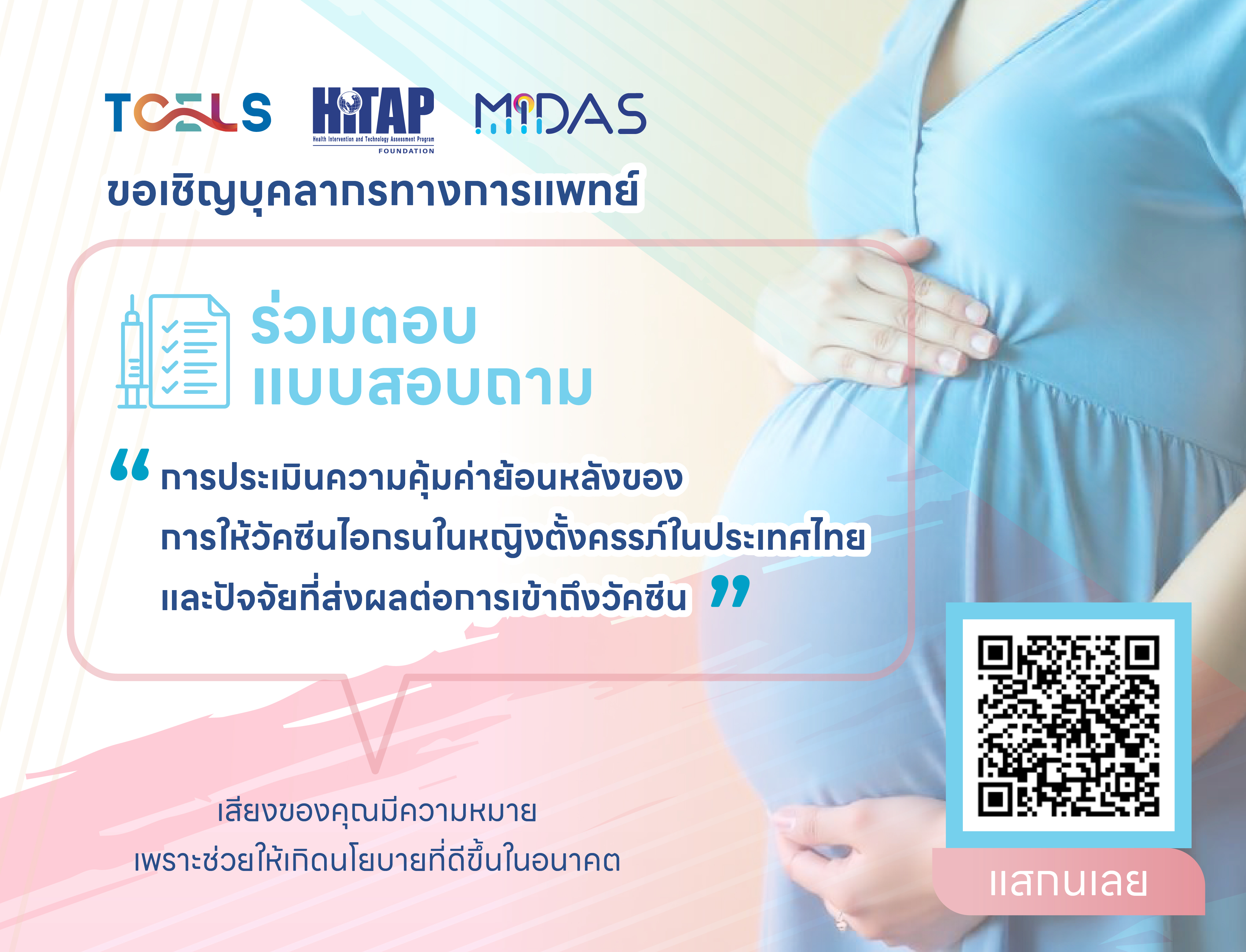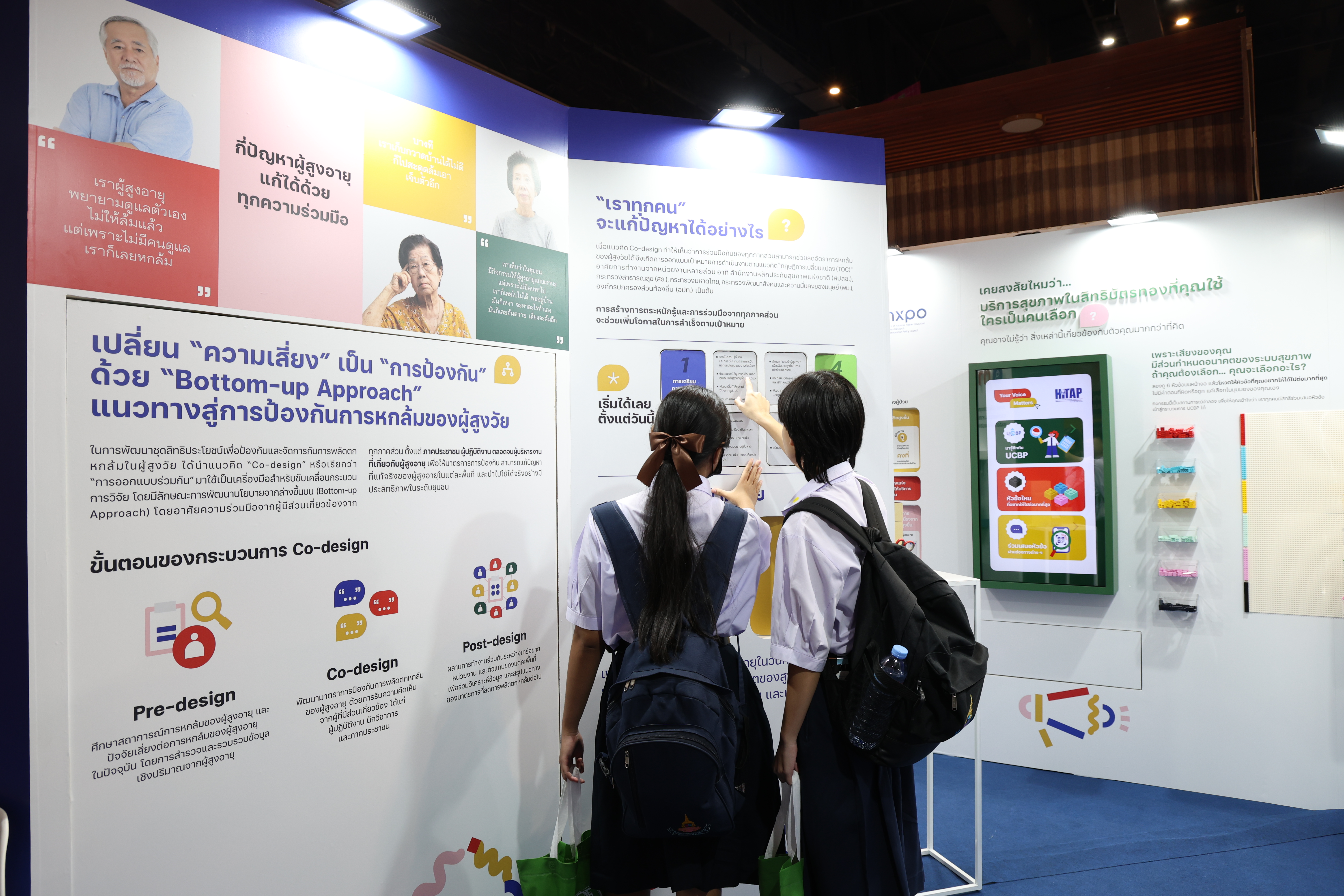ขอเชิญบุคลากรทางการแพทย์ร่วมตอบแบบสอบถาม “การประเมินความคุ้มค่าย้อนหลังของการให้วัคซีนไอกรนในหญิงตั้งครรภ์ในประเทศไทย และปัจจัยที่ส่งผลต่อการเข้าถึงวัคซีน”



To learn how best to prescribe powerful drugs to children, Congress passed a law in the 1990s that rewarded drug makers for conducting clinical studies involving children. Among the incentives for cooperating companies was a possible six-month extension of protection from generic competition after a drug’s patent expired.
More than a decade ago, federal regulators asked the producer of OxyContin, a widely abused narcotic painkiller, to run such a trial under the law. The producer, Purdue Pharma, started a study of children but dropped it in 2004, citing limited financial resources. Now, with OxyContin’s patent set to expire in 2013, the company has begun another study of young patients — opening the possibility for a patent extension for Purdue, worth hundreds of millions of dollars.
The company’s long delay in complying with the Food and Drug Administration’s request rankles critics, who say it is coming far too late for many children. Since the time that the F.D.A. asked Purdue to conduct the research, doctors have prescribed OxyContin to tens of thousands of children and teenagers without the benefit of study data to guide them.
“It looks to me like a raw, crass, last-gasp exploitation of a drug that has been synonymous with misuse, abuse and harm to patients,” said Dr. Arthur Caplan, the head of the division of medical ethics at NYU Langone Medical Center.
A spokesman for Purdue, which is based in Stamford, Conn., said that the company decided in 2004 to redirect the money it was spending on a pediatric trial into an effort to develop a version of OxyContin that was more resistant to being abused.
“We reinitiated the remaining pediatric trials once we had the necessary resources to continue them,” said that spokesman, James W. Heins. “These trials are challenging to conduct and can take years to complete.”
In 2004, the year Purdue Pharma abandoned the trial, sales of OxyContin reached $1.7 billion, according to IMS Health, a consulting firm. Over the last decade, sales of the painkiller have exceeded $15 billion.
No one questions that OxyContin, a time-release version of a narcotic drug or “opioid” called oxycodone, can benefit some younger patients suffering severe pain from cancer or conditions like sickle cell anemia. Some experts say the study will provide useful data to guide the drug’s use.
But other experts worry that little is known about OxyContin’s long-term risks in adults, much less children.
For example, opioids like OxyContin have been shown to reduce the production of sexual hormones in both men and women, leading to extreme lethargy and lack of drive.
“Opioids have endocrinological effects and therefore potential developmental complications are a concern,” said Dr. C. Richard Chapman, the former head of the Pain Research Center at the University of Utah. “It just doesn’t make sense.”
In 1997, Congress passed the Best Pharmaceuticals for Children Act, the statute that created the incentive for drug makers to test the products in young patients. Not long after the bill’s passage, the Food and Drug Administration formally requested that Purdue Pharma conduct three studies of oxycodone, OxyContin’s active ingredient, said the company spokesman, Mr. Heins.
In written responses to questions, Mr. Heins said that the company completed two of those studies, both of which involved oxycodone in liquid form, the way a drug might be administered in a hospital using an injection or through an intravenous drip. But the third study requested by the F.D.A. — a pediatric trial of OxyContin itself, a time-release pill form of oxycodone — was not conducted.
Mr. Heins said the company abandoned the trial in 2004 after enrolling just a few patients. “It had to be discontinued because of a lack of resources,” Mr. Heins wrote.
Mr. Heins added the company focused its spending on the development of a more abuse-resistant form of OxyContin. Purdue Pharma has since patented that version of the drug and is now marketing it.
Pediatric drug studies can cost millions of dollars to conduct.
A spokeswoman for the F.D.A., Karen Riley, declined as a matter of policy to discuss the agency’s interactions with Purdue Pharma because it involved business confidential information.
In 2009, about a decade after the F.D.A.’s original request, Purdue Pharma assembled a panel of experts to discuss how to best proceed with the pediatric trial of OxyContin, Mr. Heins said. New talks with the F.D.A. followed and an agreement was reached in 2010 on a trial design, he added.
The company’s pediatric study drew public attention this week when The Daily, an online publication, wrote an article about it.
Dr. Nathaniel P. Katz, a pain management expert, said that over the last decade, the F.D.A. had changed the type of information it seeks from makers of narcotic painkillers who run pediatric trials. Initially, he said, the agency wanted studies similar to traditional trials in which some patients were put on the drug being studied and other patients received a placebo like a sugar pill.
“Where are you going to find parents willing to take the risk that their child will be put on a placebo?” Dr. Katz said.
The study that Purdue Pharma is currently conducting is not a placebo trial. Instead, it involves about 150 patients from 6 to 16 years of age who are already on opioid painkillers. In the study, which is expected to be completed next year, those patients will get OxyContin for up to six months.
Senator Richard Blumenthal, a Democrat of Connecticut who investigated Purdue Pharma while attorney general of that state, said that while the company might benefit from the pediatric testing law, its delay in running the OxyContin trial did not appear to reflect the statute’s spirit.
“If a drug is going to be used on children, tests to ascertain its safety should be run as early as possible,” he said.